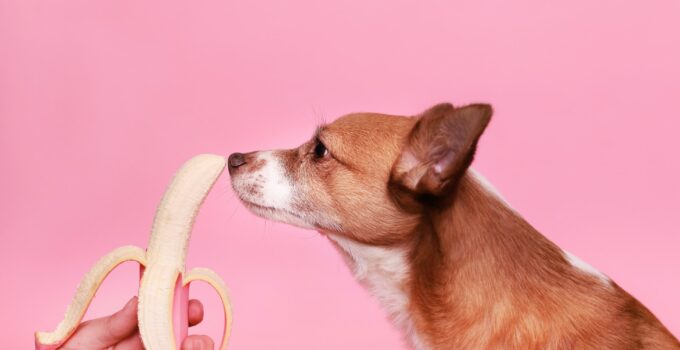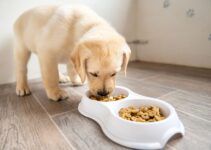The dog is often treated as a family member and generously shared with him food prepared for everyone – soups and borscht, porridge and pasta, vegetable stew and fried potatoes. Pets are often pampered with products that by human standards are delicacies – smoked sausage, chocolates, exotic fruits.
If the daily food from the human table does not meet the needs of dogs and is not useful for them, then among the delicacies can be found products that are very dangerous for the dog’s body. Therefore, owners who prefer to feed their pets home food, you need to study the list of foods that are prohibited and undesirable for dogs.
Food taboos for dogs
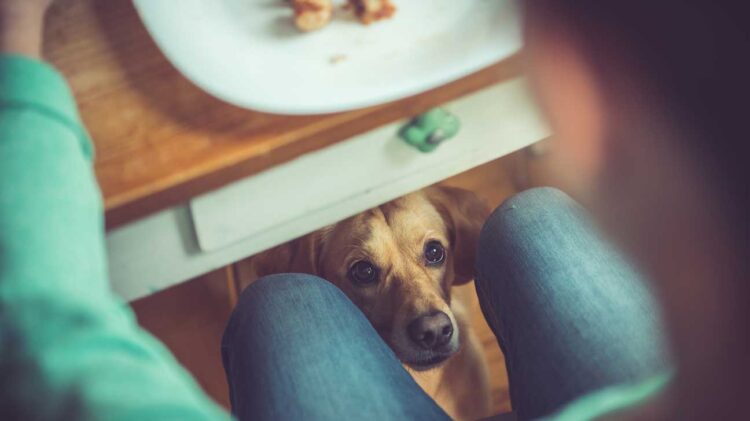
Source: healthline.com
A number of products that are safe and beneficial to the human body pose a serious threat to dogs. It is better not to include them in the diet, even in minimal quantities.
Cocoa and all products based on it contain theobromine, and coffee and tea – caffeine. These alkaloids for dogs are highly toxic, are strong allergens, have a dangerous effect on the nervous and cardiovascular systems. Even in moderation, they provoke restless behavior, hyperactivity, tachycardia, severe allergic reactions, digestive disorders (vomiting, diarrhea), and have a diuretic effect. More dangerous consequences of eating and drinking these alkaloids – tremors, seizures such as epilepsy, coma. 7 g of dark chocolate per 1 kg of dog weight is a deadly dose, milk chocolate is less toxic, but also harmful.
Nuts are rich in useful trace elements, but due to the peculiarities of the digestive system of dogs, they are practically not digested, the harm from nuts outweighs the benefits. Almonds, cashews, pine nuts, edible chestnuts, peanuts (if the dog is not allergic to it) can be given as a treat to a couple of kernels no more than 3 times a week, otherwise, it is easy to provoke obesity. The presence in the dog’s diet of walnuts and hazelnuts, pistachios, macadamia nuts, and sweet acorns is highly undesirable. It should also be borne in mind that old, rancid nuts that have become addicted are dangerous because they accumulate toxic substances. The concentration is sufficient to cause severe poisoning in dogs, especially tiny ones.
Onions and garlic are popular vegetables with a sharp taste and pronounced aroma – an integral ingredient in many dishes. But giving them to dogs in any form is highly undesirable due to the high concentration of disulfides and sulfoxides. These substances disrupt hematopoiesis, destroy red blood cells, so onions and garlic can cause anemia in dogs, and onions are much more dangerous. Garlic does not pose a threat to hematopoiesis if you feed 1-2 cloves a week, but even this amount is enough to irritate the gastric mucosa and worsen the sense of smell.
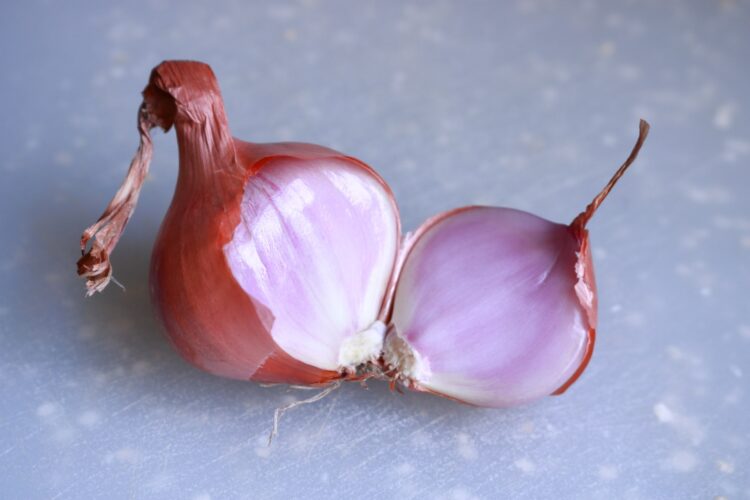
Source: unsplash.com
For the same reason, do not add any spicy spices to dog food. They can provoke the development of gastritis and even ulcers, reduce olfactory acuity. In addition, spices stimulate the appetite, and this threatens overeating and obesity.
As for salt, it should not be completely excluded from the diet of dogs, it is necessary to maintain water-electrolyte balance. But the need for salt in dogs is much lower than in humans. Food should be slightly salty, you can use only large, preferably iodized salt. Its excess leads to electrolyte imbalance, harmful to the heart and urinary system.
Meat delicacies are high in fat, salt, and spices. Despite their attractive taste, they are harmful to the health of dogs and humans, and the digestive system of dogs with such a load is much more difficult to cope with. High-fat sausages, as well as fatty meat and especially fat that has undergone heat treatment, overload the pancreas, can provoke an attack of acute pancreatitis. Regular feeding of such products threatens the development of chronic pancreatitis and obesity.
Avocado contains parsley, a substance that causes intoxication in dogs, vomiting and diarrhea, and heart failure. The avocado stone has the highest content of parsley, the second danger is that it can block the digestive tract, causing asphyxia or intestinal obstruction.
Mushrooms, which are very difficult to digest due to the content of chitin, are often toxic (absorbs harmful substances from the soil, air). When mushrooms are added to the dog’s diet, the liver and pancreas are subjected to excessive stress, with regular feeding they disrupt the production of digestive enzymes, which leads to chronic gastrointestinal diseases. Another danger – a dog that was fed edible mushrooms at home, on a walk, can eat poisonous. It is better if the pet will not perceive mushrooms as food at all.
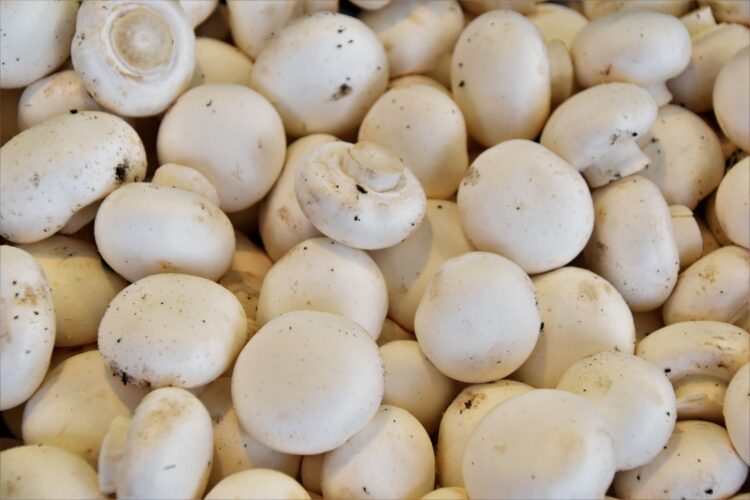
Source: unsplash.com
Sugar, sweets and other confectionery are harmful to teeth, can lead to diabetes and obesity. Carbohydrate metabolism in dogs is slower than in humans, the body produces less insulin and tooth enamel is more vulnerable, so the risks are higher. The sweetener xylitol is especially dangerous, even in small doses can provoke convulsions, vomiting, and the development of liver failure due to a sharp decrease in blood sugar in the dog. Ice cream is included in the list of prohibited products not only because of its sugar content, but also because of lactose (its intolerance is a common phenomenon). Modern treats usually contain many chemical additives, dyes, flavors, vegetable fats, including palm oil, which are very poorly digested by dogs. Read the article of USServiceAnimals if you want to know if popcorn is safe for dogs to eat.
Baking yeast (not to be confused with beer, a source of vitamins and prebiotics) provokes fermentation in the gastrointestinal tract, flatulence, the same reaction is caused by fresh bread. Bakery products from finely ground flour, as well as muffins are also harmful as a source of carbohydrates that lead to weight gain. Wheat flour usually contains gluten, which very often causes food intolerance in animals.
Ironically, the product, which is considered the main dog food, is included in the list of harmful to dogs. Strictly forbidden:
• tubular bones of birds – their sharp edges can injure the esophagus, gastrointestinal tract;
• thin sharp bones of fish – the bone can get stuck in the throat, injure the digestive system;
• boiled bones – do not contain nutrients, are slag, very poorly digested, clog the stomach, can lead to intestinal obstruction, easily split with the formation of sharp fragments.
Other harmful products dangerous for dogs:

Source: yahoo.com
• grapes and raisins – provoke bloating, in most animals cause kidney failure;
• peaches, persimmons, plums, quinces – usually provoke stomach upset, diarrhea;
• citrus, kiwi, pineapple – irritate the gastric mucosa, are often allergens;
• sorrel, rhubarb – rich in oxalates, salts that provoke urolithiasis;
• pomegranate – through the bones can cause intestinal obstruction;
• raw potatoes, especially sprouted and green – contain the poisonous alkaloid solanine;
• corn in whole cobs (can cause intestinal obstruction) and canned (not digested at all, contains a lot of sugar and preservatives);
• rich broth – contains a lot of fats, extractives that irritate the liver and stomach;
• store-bought minced meat – too greasy, often prepared from stale meat, may contain preservatives. In addition, when eating minced meat, the jaw muscles are not loaded, and the teeth are not cleaned of plaque;
• fried food – has a high content of harmful fats that overload the liver and pancreas, cholesterol, carcinogens;
• any pickles, marinades, canned food for people;
• fast food, sauces and snacks for people;
• sodas.
Also, do not give dogs expired foods, spoiled, moldy food, which contains many dangerous toxins and can provoke severe food poisoning. A complete taboo is imposed on alcohol of any strength, tobacco, drugs. Intended for humans, vitamins, vitamin and mineral complexes, especially iron supplements, are also toxic to dogs. Finally, dogs should not be given cat food on a regular basis, it is balanced for other needs.
Following the selection of the food for your pet, you should know how to feed it properly. Make sure your dog eats slowly. Feeders and snuffle mats made of materials that are non-abrasive and non-irritating can also protect your dog’s nose, gums, and tongue while stimulating its sense of animal instinct. For more details, check PetParents. Provide your pets with the best food and feeders.
A few tips in the end
Properly organizing a dog’s home food is not so difficult. The first rule: all food that is not considered very useful for humans (fried, smoked, fatty, spicy, fast food, semi-finished products, canning, sauces, muffins, and sweets) for dogs is strictly prohibited. The list of other products that are dangerous for dogs, at first it is better to print and keep on hand, after a while, you will memorize it. Finally, it is necessary to take into account the individual characteristics of the pet – the level of activity, the degree of sensitivity of the digestive system and the presence of allergies, susceptibility to disease. And the easiest and most reliable way to minimize the risks of malnutrition is to give your pet quality ready-made food, selected according to age and individual needs, as well as special dog treats.

